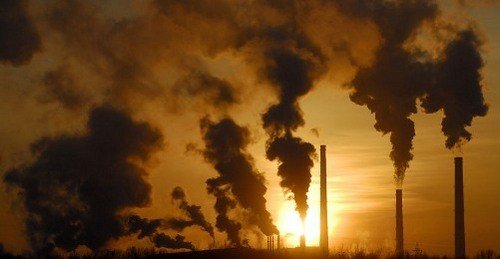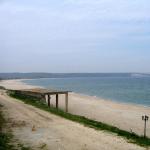CLIMATE CHANGE
"Nabucco Project Will Harm Environment"

Assist. Prof. Ahmet Atıl Aşıcı, lecturer at the industrial engineering department of Istanbul Technical University as well as international coordinator of the Green Party in Turkey, warns that the Nabucco pipeline project is being advertised as more beneficial than it is.
Stretching across five countries
On Monday, 13 July, an agreement for the pipeline was signed. The pipeline will stretch from the Caspian Sea to Europe via Turkey. Of its 3,300 kilometres, 2,200 will be in Turkey.
The pipeline is to begin in Erzurum, eastern Turkey, and stretch across the country, then passing through Bulgaria, Romania and Hungary, until terminating in Austria.
Speaking with bianet, Aşıcı said that the project would increase Europe's dependency on fossil fuel, which in turn produced the greenhouse gas that led to further global warming.
The terminal points of the pipeline, so the engineer, would also damage the environment.
Furthermore, transporting gas for such long distances would also increase tensions in the Caucausus, with the possibility of war not to be denied.
He called for alternative energy policies instead, with investment in sun, wind, and other renewable energy sources.
Indirect economic effects
"Natural gas is a product with stable demand; the demand does not go down, however much prices rise. This project will certainly bring Turkey economic income in terms of money charged per kilometre and volume."
"The passage must be secure and stable, a condition Turkey can only achieve with a certain level of political stability. This again is only possible with a certain economic development. This can be seen as the indirect economic effect of the project."
Energy should be local and renewable
The engineer added, "We support localised and renewable energy sources."
He pointed out that taking gas from Turkmenistan and Azerbaijan, and transporting it far away has led to tensions about where the gas will pass. "If energy was localised, we would not have had these problems."
While countries are trying to create a new international agreement to combat climate change, Aşıcı warns that this project is working in the wrong direction: "At a time when we need to decrease fossil fuel consumption, we are increasing it. This is not acceptable. In December, countries will pledge to decrease the production of greenhouse gas by a certain amount in Copenhagen. But projects like Nabucco increase Europe's dependency on fossil fuel."
It is expected that the EU will increase its natural gas consumption by 1.8 percent a year until 2030, and that natural gas will increase from 23 percent to 32 percent of the EU's energy sources.
Terminal points become environmentally damaged
Giving as an example the Baku-Tiblisi-Ceyhna line, Aşıcı pointed out the environmental damage of terminal points: "In Ceyhan, ports are being constructed, and the region is being designed as an 'energy reservoir'. There are seven thermal energy stations in 100 kilometres. Great amounts of coal are being brought to and taken away from the ports. However, it should not be an energy centre, but a centre of life."
Hope for employment a delusion
The Zaman newspaper heralded the signature of the agreement with the headline "Not a dream, but real" and foresaw the employment of 10,000 people.
However, Aşıcı pointed out that the project would begin in 2011 and end in 2014: "Pipes will be laid and infrastructure prepared, which will create temporary employment. But the project will end in a few years. It is more important for the government, at a time when unemployment is so high, to create permanent, environmentally-friendly, 'green' jobs."
"When there is wind and sun, expecting employment from a temporary project is an exercise in futility. It is much more rational to invest in renewable energy." (TK/AG)
KURDISH QUESTION
PKK Ceasefire to be Terminated on 31 October?

KCK CASE
Court Dismissed Request for Defence in Kurdish

7th Istanbul Gathering for Freedom of Thought

CONSTITUTIONAL AMENDMENTS
58 Percent Said "Yes" to Constitutional Reform Package

Rights Organizations 3 Years ahead of Foreign Minister













